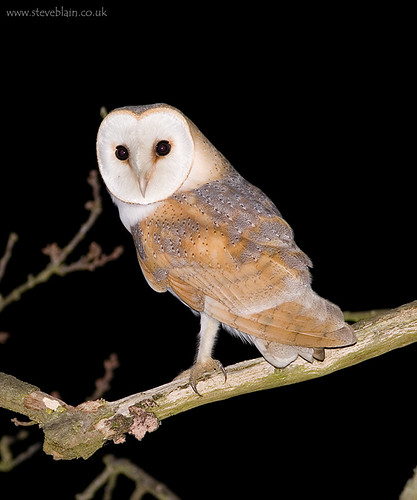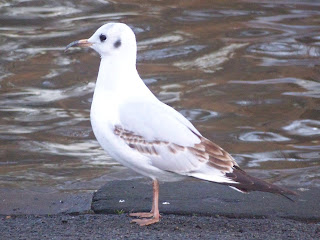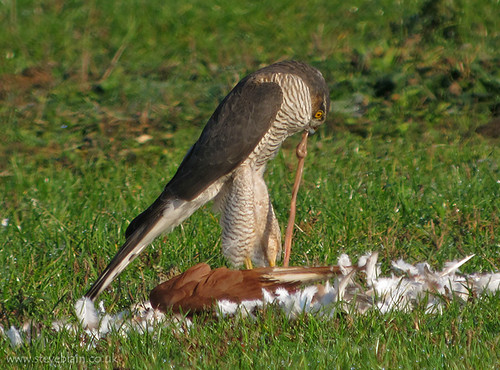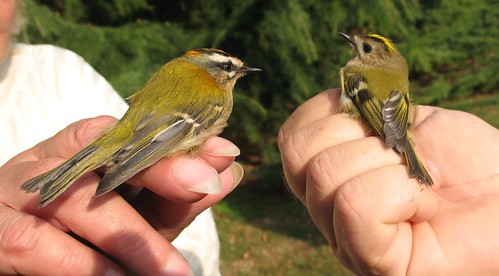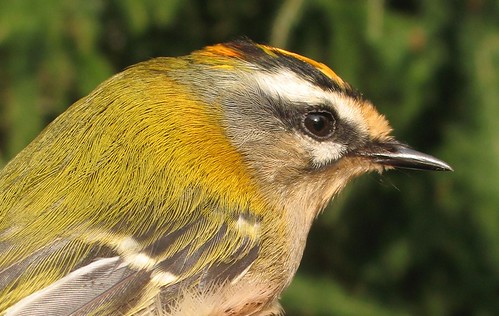Greylag Goose H6C at Blunham Lake, 31st December 2011. I wonder where it was ringed?
Saturday, December 31, 2011
Friday, December 30, 2011
Thursday, December 29, 2011
Common Sand & Grey Wag - Stewartby Lake



 A few photos of the very confiding Common Sandpiper on the sailing club bank of Stewartby Lake. The sandpiper came within 12 feet of Dave Ball's car. Unfortunately, the combination of the poor light and the highly active nature of the bird made it very hard to get both the head and tail in focus at the same time. I'll hopefully get another chance when the light is better... The Grey Wagtail was also on the sailing club bank. Photos by Martin Green.
A few photos of the very confiding Common Sandpiper on the sailing club bank of Stewartby Lake. The sandpiper came within 12 feet of Dave Ball's car. Unfortunately, the combination of the poor light and the highly active nature of the bird made it very hard to get both the head and tail in focus at the same time. I'll hopefully get another chance when the light is better... The Grey Wagtail was also on the sailing club bank. Photos by Martin Green.Wednesday, December 28, 2011
Tuesday, December 27, 2011
Nordic Jackdaw
Monday, December 26, 2011
Friday, December 23, 2011
Hook-tip Gull
Saturday, December 10, 2011
Great Northern Diver - Stewartby Lake
Monday, December 5, 2011
Sunday, December 4, 2011
Un-American Activities
In case anyone was wondering what was behind the statement on the LROS Bird News page yesterday regarding a reported American Golden Plover at Cossington Meadows, here is a short version of the story.
Basically, the ‘observer’ who reported the plover is known to have claimed a lot of highly unlikely birds in the county recently. I thought Birdguides at least were aware of him, but this one slipped through the net somehow. Unfortunately I didn’t find out who it was until after dark, by which time a lot of people had wasted an afternoon looking for a non-existent bird.
Although I’ve never met him, he has been described to me as a ‘very keen but over-enthusiastic young lad’. I’m not sure how young, but certainly old enough to be able to use a computer and report sightings to Birdguides and LROS. I would also suggest, particularly in view of the fact that he has been warned about reporting fictitious rare birds before, not least by his parents, that he ought to be old enough to realise the possible consequences of his actions.
Before anyone asks, given his previous claims I don't think there is any possibility that he simply ‘made a mistake’ with this bird. It’s not certain that he was even at Cossington Meadows yesterday as about ten later ‘updates’ on the bird in the afternoon all appeared to have been sent from a home computer, along with a later report of a White-billed Diver at the site and a Red-flanked Bluetail & 2 Black-necked Grebes at Priory Water around the same time. And that wasn’t his first Red-flanked Bluetail in the county this autumn.
Over-enthusiasm is one thing, but this seems to be crossing the line into out and out fabrication. All very unfortunate, and sadly symptomatic of our modern rarity-obsessed birding culture. As John Hague pointed out, when we were that age (whatever age he is) we wouldn’t have even heard of birds like Red-flanked Bluetail, let alone thought that we might see one. We can only hope that he will grow out of this and go on to become a proper birder, although I’m afraid it will be a long time before anyone believes anything he reports!
Basically, the ‘observer’ who reported the plover is known to have claimed a lot of highly unlikely birds in the county recently. I thought Birdguides at least were aware of him, but this one slipped through the net somehow. Unfortunately I didn’t find out who it was until after dark, by which time a lot of people had wasted an afternoon looking for a non-existent bird.
Although I’ve never met him, he has been described to me as a ‘very keen but over-enthusiastic young lad’. I’m not sure how young, but certainly old enough to be able to use a computer and report sightings to Birdguides and LROS. I would also suggest, particularly in view of the fact that he has been warned about reporting fictitious rare birds before, not least by his parents, that he ought to be old enough to realise the possible consequences of his actions.
Before anyone asks, given his previous claims I don't think there is any possibility that he simply ‘made a mistake’ with this bird. It’s not certain that he was even at Cossington Meadows yesterday as about ten later ‘updates’ on the bird in the afternoon all appeared to have been sent from a home computer, along with a later report of a White-billed Diver at the site and a Red-flanked Bluetail & 2 Black-necked Grebes at Priory Water around the same time. And that wasn’t his first Red-flanked Bluetail in the county this autumn.
Over-enthusiasm is one thing, but this seems to be crossing the line into out and out fabrication. All very unfortunate, and sadly symptomatic of our modern rarity-obsessed birding culture. As John Hague pointed out, when we were that age (whatever age he is) we wouldn’t have even heard of birds like Red-flanked Bluetail, let alone thought that we might see one. We can only hope that he will grow out of this and go on to become a proper birder, although I’m afraid it will be a long time before anyone believes anything he reports!
Wednesday, November 23, 2011
Sunday, November 20, 2011
Long-tailed Tit & Goldcrest - MVCP
Sparrowhawk
Saturday, November 19, 2011
Caspian Gull - Stewartby Lake
This video of one of the three Caspian Gulls in the Stewartby Lake roost this afternoon was taken at a range of about 300-400 yards using a Canon S95 compact camera attached to a Nikon S95 via an adaptor:
Video by Martin Green.
Video by Martin Green.
When kestrels attack....
This video was taken at a range of about 100 yards near the MVCP pillinge using a canon S95 compact camera attached to a Nikon ED50 scope via an adaptor.
Video by Martin Green.
Video by Martin Green.
And here is a video still of the moment of impact: 

Friday, November 18, 2011
Tundra Bean Geese
Tundra Bean Geese, Cainhoe Lakes, 19th November 2011. This is the second time in recent years Tundra Bean Geese have turned up at this site.
Tuesday, November 15, 2011
Caspian Gull
Caspian Gull, Stewartby Lake, 15th November 2011 by Martin Palmer. One of two adults present that evening.
Hoax!
Yet again there’s a thread in progress on Birdforum about an apparent hoax – this time an anonymous Twitter report of an Eyebrowed Thrush in a private garden at Hunstanton last weekend. I have to say that on the evidence available so far this one is looking like a hoax, but some of the arguments regularly trotted out on BF on these threads are somewhat spurious, to say the least. In particular a lot of people seem to have become fixated on ‘EXIF data’ whenever a photo of a contentious bird appears. Look at the EXIF data – that proves it’s a hoax. Someone’s removed the EXIF data – must be a hoax. No, it’s gen – the EXIF data fits with the claimed time of the sighting. Etc, etc.
OK, if the bird was claimed to have been seen at a particular time and the EXIF data is completely at odds with this (weeks or months out), then yes, be suspicious, but it doesn’t prove anything on its own. Many cameras will have incorrect times and dates – I just checked mine for the first time since I first set it up nearly three years ago, and although the date was right, the time was an hour and fifteen minutes ahead! Doesn’t say much for the clock chips Canon use. EXIF data can also easily be edited using various free programs, so even if it does fit with the claimed time and date of a sighting it’s completely irrelevant as evidence to support a claim.
But what about a total lack of EXIF data, as is the case with the Eyebrowed Thrush photo? Anyone who knows even a little bit about web design should be aware that photos should ideally be ‘saved for web’ to minimise browser loading times. This is even more important these days with so many people using mobile devices to browse the Internet. Obviously the majority of people don’t know this, which is why you see so many HUGE photos around that take forever to download on a phone. And many photos saved at low jpeg settings, which consequently look a lot worse than they would if they were properly optimized. But people who do know what they’re doing save everything for web in Photoshop. As well as optimizing the image so you get the best possible quality whilst keeping the file size small, this also completely removes the EXIF data. There is absolutely nothing sinister or suspicious about this – in fact in an ideal world it would be normal practice for anyone uploading photos to the web.
If you look at any photo of mine anywhere on the Internet (flickr, LROS website, this blog etc) you will not see any EXIF data, and the date shown will be the date I saved the file (which could be months later), not when the photo was taken.* Does that mean I’m a hoaxer? Well, I was in Hunstanton on Sunday......
* - a perfect example of this is the first Humming-bird Hawk-moth photo on my flickr page - it says authoritatively: 'This photo was taken on November 6th 2011'. No, it wasn't - it was taken on September 27th 2011, but because there's no EXIF data, flickr gives this completely spurious date, which is just the date the file was created. As far as I know there's no way of turning this off - if I could, I would.
OK, if the bird was claimed to have been seen at a particular time and the EXIF data is completely at odds with this (weeks or months out), then yes, be suspicious, but it doesn’t prove anything on its own. Many cameras will have incorrect times and dates – I just checked mine for the first time since I first set it up nearly three years ago, and although the date was right, the time was an hour and fifteen minutes ahead! Doesn’t say much for the clock chips Canon use. EXIF data can also easily be edited using various free programs, so even if it does fit with the claimed time and date of a sighting it’s completely irrelevant as evidence to support a claim.
But what about a total lack of EXIF data, as is the case with the Eyebrowed Thrush photo? Anyone who knows even a little bit about web design should be aware that photos should ideally be ‘saved for web’ to minimise browser loading times. This is even more important these days with so many people using mobile devices to browse the Internet. Obviously the majority of people don’t know this, which is why you see so many HUGE photos around that take forever to download on a phone. And many photos saved at low jpeg settings, which consequently look a lot worse than they would if they were properly optimized. But people who do know what they’re doing save everything for web in Photoshop. As well as optimizing the image so you get the best possible quality whilst keeping the file size small, this also completely removes the EXIF data. There is absolutely nothing sinister or suspicious about this – in fact in an ideal world it would be normal practice for anyone uploading photos to the web.
If you look at any photo of mine anywhere on the Internet (flickr, LROS website, this blog etc) you will not see any EXIF data, and the date shown will be the date I saved the file (which could be months later), not when the photo was taken.* Does that mean I’m a hoaxer? Well, I was in Hunstanton on Sunday......
* - a perfect example of this is the first Humming-bird Hawk-moth photo on my flickr page - it says authoritatively: 'This photo was taken on November 6th 2011'. No, it wasn't - it was taken on September 27th 2011, but because there's no EXIF data, flickr gives this completely spurious date, which is just the date the file was created. As far as I know there's no way of turning this off - if I could, I would.
Monday, November 14, 2011
Priory Gannet 14/11/2011
I'm sure there will some better images out there. Here is my digiscope effort as the bird swam close to the north shore. While I was there it also flew round a few times and was seen to perform two shallow angle plunge dives (or crash landings?)
Gannet
Two more shots of the juvenile Gannet found at Priory CP by Tony Gill, 14th November 2011. The upper shot was taken by Dave Kramer, and the lower shot by Steve Blain.
Sunday, November 13, 2011
Slav Grebe
Slavonian Grebe, Broom GP, 13th November 2011. Check out its call below!
Slavonian Grebe at Broom GP by Steve Blain
Caspian Gull
Adult Caspian Gull, Quest pit, 13th November 2011. The lower shot, although poor, shows the wing-tip pattern typical of Caspian Gull, with broad white tips to P10 and P9, shafts of white (or 'tongues') in to the black, and a black band on P5.
Saturday, November 12, 2011
Black Redstart
Black Redstart, Devon Drive, Biggleswade, 12th November 2011. A nice surprise while having a bacon sarnie for lunch!
Wednesday, November 9, 2011
Sunday, November 6, 2011
Tuesday, November 1, 2011
Mute Swans
These two colour-ringed Mute Swans were at Blunham Lakes on 1st November 2011. They were both originally ringed on The Embankment in Bedford. 772 was ringed on 11th March 2011 and this is the first time it's been seen away from the ringing site. 984 was originally ringed on 15th July 2011 and has been seen at Priory CP on 10th September, before turning up at Blunham.
Many thanks to the BTO, and Mike Reed in particular, for the information above.
Many thanks to the BTO, and Mike Reed in particular, for the information above.
Saturday, October 29, 2011
Friday, October 28, 2011
Tuesday, October 25, 2011
This may come as a shock to some people, but I've finally given in and joined Facebook. It seems to be the thing to do these days. So if you know me, you may be getting/have already been sent an invitation to be my friend. This always sounds a bit pathetic and needy to me, but that's what they decided to call it, so who am I to argue. So pleeeease be my friend..... oh, go on....... I'm really not as objectionable as I seem...... I promise I won't keep ringing you up, or emailing you hundreds of amusing pictures of cats, honest......
At some stage, when I get my head round it all, I shall be creating pages on the aforementioned social networking site for my two art websites. I know most of the people who read this crap aren't likely to become customers for artwork, but the point is that friends of friends, or relatives of friends, or friends of relatives might. Sort of like viral, innit. In the modern parlance. I'm dead modern, me. I'm on Twitter as well, you know.
Monday, October 24, 2011
Sunday, October 23, 2011
Subscribe to:
Comments (Atom)









